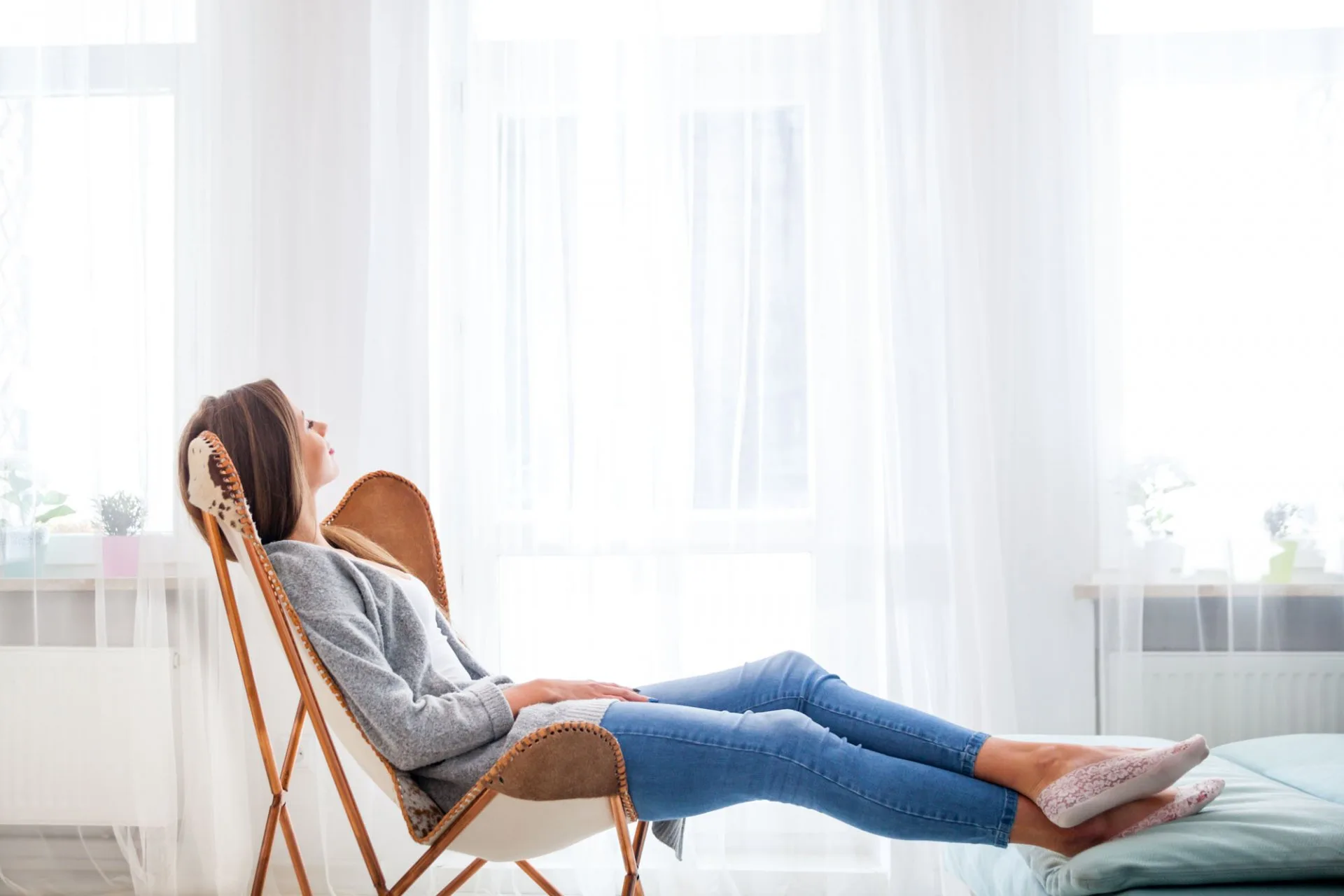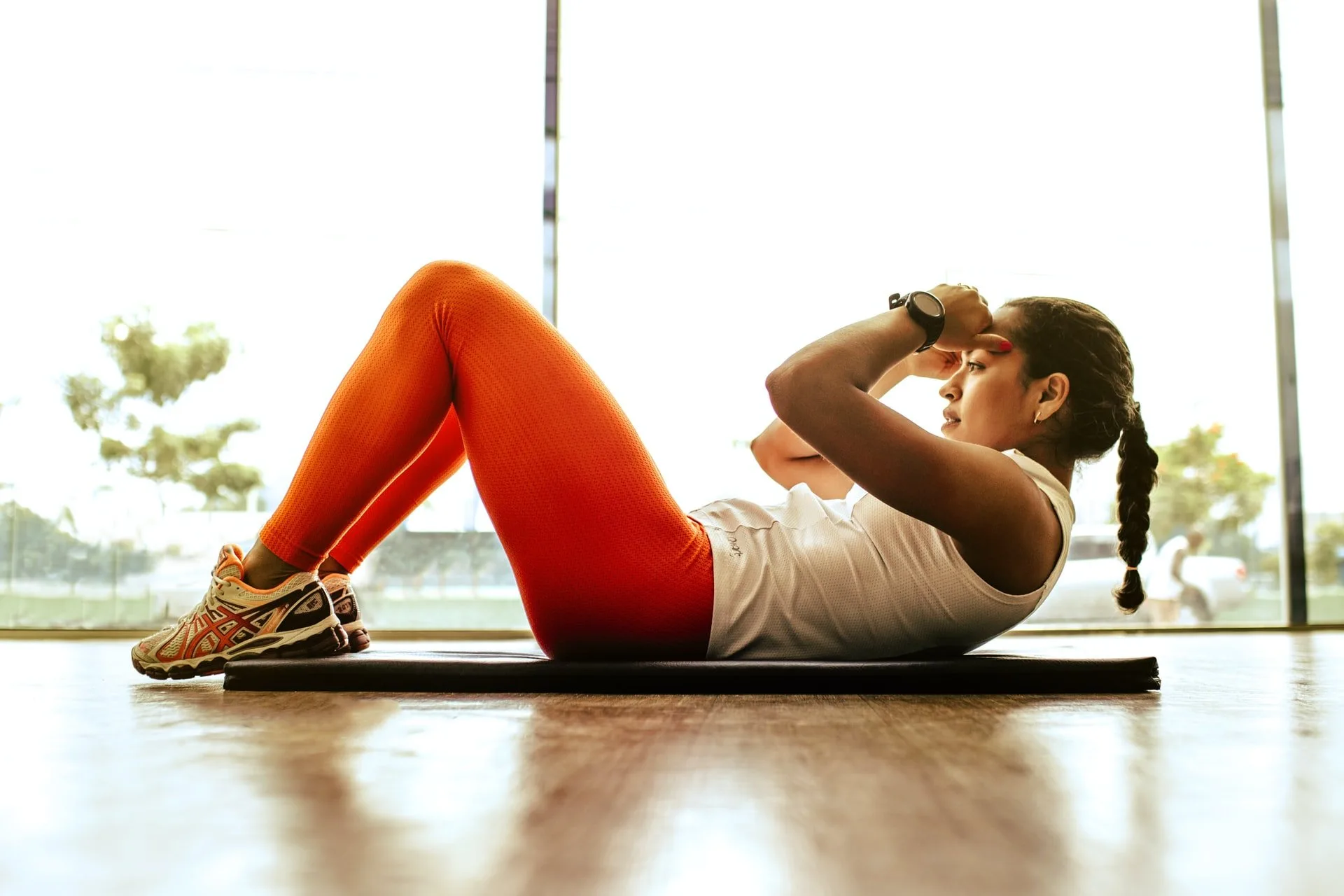As we journey through our lives, playing out routines that have been set in place over the years and decades, we rarely get a chance to pause and consider just how powerful our habits really are. What may seem like simple daily choices (such as grabbing a latte at the train station, scrolling through our phones, or pouring a glass of wine before bed) are patterns ingrained in our brains, encoded like software into our neural pathways via a lifetime of repetition.
This is why so many of us can find ourselves feeling as if we’ve become stuck in a rut. We’re filled with honorable intentions but never able to make any positive changes stick – even if we know that good habits make our lives better.
Living with anxiety
For those of us who struggle with anxiety, this experience can be even more distressing. The short term relief we find distracting ourselves with Instagram or unwinding with a tipple and a cigarette isn’t helping over the long term. So, how do we even begin to start replacing these habits with something more constructive?
The important thing to remember is that habits can be changed. Our neural pathways can be re-routed simply through repetition and the more we do something, the easier this becomes. Anxiety is an undeniably powerful emotion. However, even small changes will help us to manage it more effectively. We can learn how to reduce those nagging issues with just seven daily habits.
1. Have a mental clear-out
This may sound like a big ask – and most especially if your mind is often buzzing with worries. Nonetheles, you’ll find that having a mental clear out doesn’t have to be as difficult as you think. To help process your worries and clear your head, sit down each day to write or draw in a journal the things that are bothering you.
The simple act of having to consciously identify and recognize our worries can sometimes be enough on its own to make them dissolve, as we create enough distance between ourselves and our thoughts to view them more objectively. For example, we may have an undercurrent of anxiety that a friend is annoyed with us. However, we may find that the act of writing down that worry allows us to acknowledge that it is irrational and let it go.
When we are acutely stressed and emotional, the act of expressing our feelings on paper can also be extremely cathartic. A journal is a no-judgment space. Over time, we can learn to recognize our triggers and become more emotionally aware. By reading back on the things we’ve said or expressed, it becomes easier to recognize behavioral patterns. We’ll then be able to identify areas where we can make changes in our lives. Once we’ve returned to them with a clear head, we can even gain clarity on how to solve problems we previously thought intractable.
2. Leave the wine behind
It’s easy for anyone to fall into the belief that alcohol “helps” anxiety. Especially as it makes us less nervous around other people if we’re required to socialize, and can knock us into a blank, dreamless sleep after a long day. Unfortunately, however, this belief, although understandable, is very far from reality. The effect alcohol has on key neurotransmitters worsens anxiety, especially over the long term. It also encourages a kind of avoidance behavior that is counter-productive.
“Heavy drinking” in the USA is defined as 8 or more drinks per week for women and 15 or more drinks per week for men, but even if you drink less than this, you may still feel the impact on your general wellbeing. It can be very helpful to go a month or two without alcohol in order to compare how you feel before and after – although it’s important to remember that, if you are a regular drinker, in the first few days of sobriety you may temporarily experience heightened anxiety. This is simply your body adjusting and the feeling will pass.
From there, you can decide whether you want to stay on the wagon or go forward changing your daily habits so you still enjoy the odd drink or two, but with less frequency than before. Lots of us will have a few beers or glasses of wine several times a week, so even cutting it down by 50% will make a difference.
3. Move a little more
Exercise encourages us to focus on the present and reduces our anxious thoughts. This is why introducing some form of exercise as a daily habit can give us such a profound mental boost. Actions such as jogging, walking, weightlifting, yoga, and dancing can divert our attention from spiraling and unhelpful thought processes, and bring us back to ourselves.
Even more encouragingly, evidence suggests that increasing our heart rate through exercise changes our brain chemistry, increasing anti-anxiety neurochemicals such as mood-enhancing serotonin.
If you don’t usually make exercise a planned part of your day, it may be difficult at first to get the ball rolling, but the trick is to start small. You do not have to buy expensive equipment or join a high charging gym, simply schedule a time (perhaps on your lunch break, or when you get home from work) to go for a 30-minute walk. Once you’ve done this for a month, you’ll know you’ve cemented the idea of “exercise time” into your routine, and can be a little more ambitious – perhaps booking a yoga class, or heading to the local swimming pool.
Whatever it is, by creating the time to be physically active every day – even if it’s just engaging in a bit of enthusiastic housework or gardening – you can enjoy all those mood-boosting brain chemicals and become that bit more mindful, learning to live in the moment with a bit more ease.
4. Rethink your diet choices
Research into the human microbiome (the vast collection of bacteria and fungi that live within our bodies, and most particularly in our gut) suggests that our digestive health has a surprising link to our mental health and that making certain food choices can help our mood. While a “healthy” diet looks different for everyone, some good tips are:
- Get in the habit of adding leafy green vegetables such as kale, broccoli, and spinach to your main meal. These are quick and easy to cook, can be easily added to existing recipes (try putting spinach in a pasta sauce, for example), and are super good for you.
- Try to get enough Vitamin B, D, and other vital nutrients, both through dietary sources and, if necessary, extra supplementation.
- Reduce your caffeine intake, ideally only drinking it in the morning if you’d rather not give it up entirely. Caffeine ups our heart rate and while it isn’t unhealthy as such, it can make us feel jittery and disturb our sleep – which isn’t ideal for anyone already struggling with high anxiety. Herbal teas and decaf options can be good alternatives.
- Incorporate more gut-healthy foods into your diet, such as beans, yogurt, kefir, and kimchi.
5. Actively practice gratitude and acceptance
Whether it’s a difficult divorce, impending redundancy, or a devastating pandemic, there are some events in life which cannot be solved in a way which we find constructive and satisfying, no matter how hard we try. And while everyone finds these situations hard to cope with, they can be doubly challenging for those who also live with anxiety. Sometimes we need to focus on simply getting to the other side of a rough patch rather than thriving, but we can make this easier by embedding habits into our life which increases our resilience and coping skills.
Within a daily journaling habit, we can acknowledge the things that are out of our control. We can also still explore productive strategies to mitigate their impact through the actions we can control. For example, if you are going through a breakup, you may not be able to control how your ex-partner feels and reacts, but you can use calming techniques like breathing exercises to respond to the situation in a way that you will later feel proud of.
A big part of this is a daily practice of acceptance and gratitude. The prayer from theologian Reinhold Niebuhr, “Grant me the serenity to accept the things I cannot change, the courage to change the things I can, and the wisdom to know the difference” may be oft-repeated, but its message rings true.
If we can learn through daily reinforcement to accept what we cannot change and to notice the things which we are grateful for (even if, on some bad days, it’s nothing but appreciating the small beauty of sunlight falling through a window) we can find anxiety in challenging situations easier to cope with.
![tiktok [longevity live]](https://longevitylive.com/wp-content/uploads/2018/11/blur-blurred-background-cellphone-1092644-jpg.webp)
6. Manage your tech – don’t let it manage you
You are likely to be grappling with hundreds of emails, many of them unnecessary. Feeling as if we’ve let the admin of our lives – both professionally and personally – get out of control contributes to a lot of anxiety, so it can be really helpful to keep on top of it.
Practice the 4 D’s at set times during the day:
- Delete – bin unwanted emails and activate your unsubscribe choices
- Do – if it is urgent or can be done without too much time then complete it
- Defer – add it to your ‘to do’ list. If you need a greater chunk of time, give yourself a deadline for completion
- Delegate – give the task to someone better equipped at dealing with it than yourself.
As for social media, try enacting a digital detox.
During the pandemic, social media users coined the term “doom scrolling”. It referred to people obsessively rolling through their social media feeds late into the night. They were reading bad news and getting incensed by divisive opinions. Why don’t you put your phone away in a drawer and ignore it for a day or two? You may find that you feel like a burden has been lifted.
7. Meditate daily
When it comes to reducing anxiety through daily habits, few are more powerful than meditation. It can be done at any time of the day or night. It also requires no special ability or spiritual belief. Additionally, evidence suggests that meditation acts on our mind and body to ease anxiety in a profound way. Our minds’ bad habits – such as negative rumination, obsessing over the past, or worrying about the future – may seem ungovernable. However, daily meditation balances our state of mind. In fact, it challenges those negative and unhelpful habits that take their toll on our well-being.
Firstly, meditation soothes our “fight or flight” response – which causes anxiety. It eases us into its opposite physiological state, known as “rest and repair”. This in turn reduces stress hormones such as cortisol and adrenaline. As our body relaxes, our nervous system sends signals to the brain suggesting that all is safe and well.
Secondly, meditation has been observed to lead to positive brain changes. This includes the decreased volume of the amygdala. This is the brain’s “stress center” and where our fear response comes from. It’s theorized that these neuroplastic changes help us leave behind old habits and form new ones. Meditation loosens certain well-worn neural pathways while strengthening other, more positive ones.
With the bedrock of a daily meditation habit to support all our other new lifestyle choices, we will find that reducing our anxiety becomes far more effortless and that we can move naturally into a calmer and happier future.

Photo by Ksenia Makagonova on Unsplash

Who is the author?
Will Williams is a leading meditation expert and founding teacher of Beeja meditation. Will became interested in the use of meditation for anxiety and other health issues after discovering the practice in his mid-twenties when he was suffering from insomnia and chronic stress.
He discovered that meditation transformed his mental state and allowed him to sleep soundly for the first time in years. Thus, he committed himself to train as a meditation teacher and has since taught thousands of students. His first book, The Effortless Mind, was published by Simon and Schuster in 2018.
References
- https://www.urmc.rochester.edu/encyclopedia/content.aspx?ContentID=4552&ContentTypeID=1
- https://www.healthline.com/health/alcohol-and-anxiety
- https://www.health.harvard.edu/blog/can-exercise-help-treat-anxiety-2019102418096
- https://www.researchednutritionals.com/wp-content/uploads/2017/04/gut-brain-axis-how-the-microbiome-influences-anxiety-and-depression.pdf
- https://www.health.harvard.edu/blog/nutritional-strategies-to-ease-anxiety-201604139441
- https://www.nhs.uk/conditions/stress-anxiety-depression/reduce-stress/
- https://www.forbes.com/sites/alicegwalton/2015/02/09/7-ways-meditation-can-actually-change-the-brain/#eb053ac14658







![women [longevity live]](https://longevitylive.com/wp-content/uploads/2020/01/photo-of-women-walking-down-the-street-1116984-100x100.jpg)









